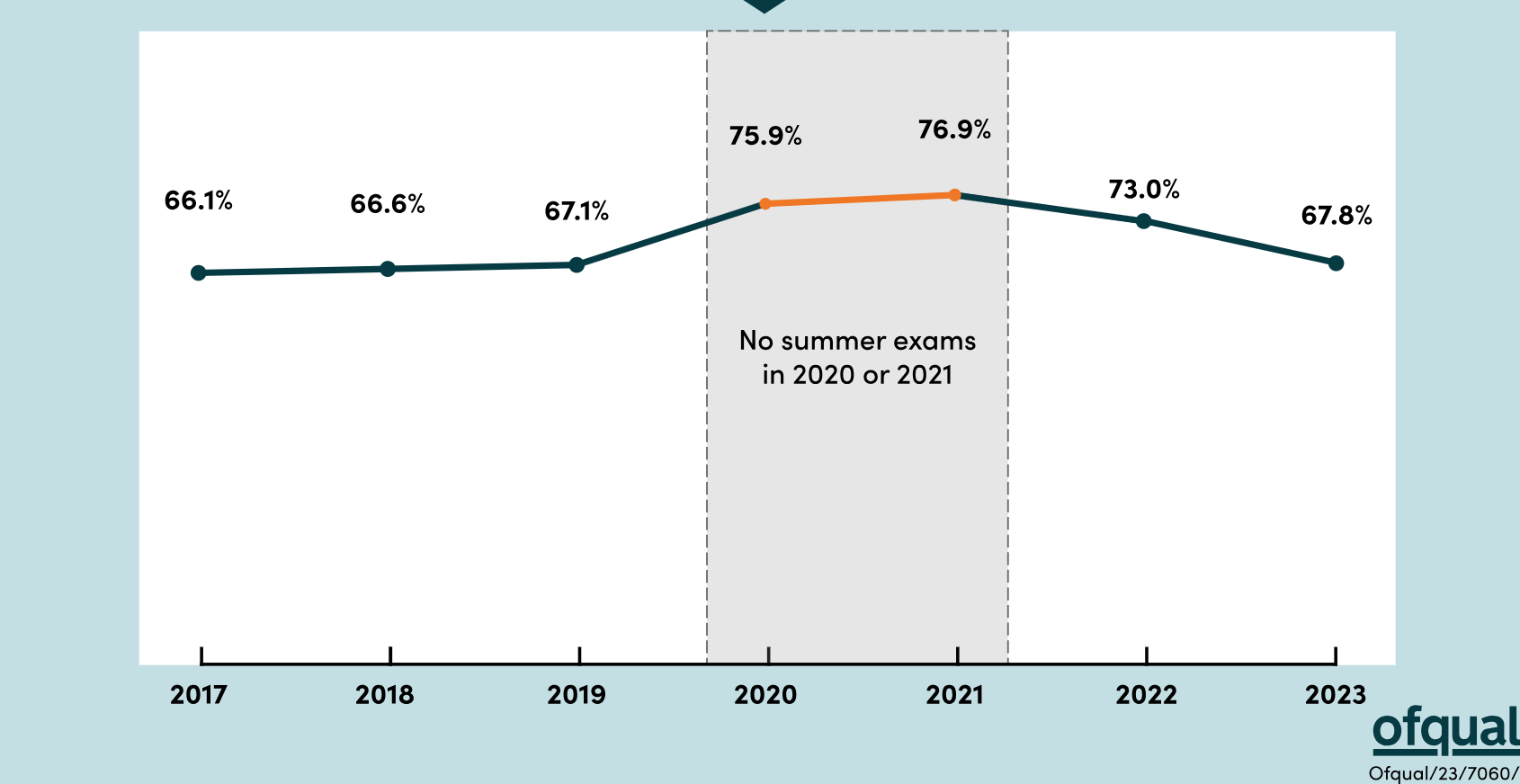GCSE 2023 results are here. What do they mean for Spanish GCSE?
Ofqual, the Office of Qualifications and Examinations Regulation, the ones in charge of checking that qualifications like GCSE "reliably indicate the knowledge, skills and understanding students have demonstrated" and that "assessments and exams show what a student has achieved", among other tasks, published an informative article in 2019.
In it, Ofqual wrote that they had decided to adjust grading standards in GCSE French and German to align them with the ones in Spanish. They had prepared a research about it and realised that by doing this they "will make French and German less severely graded in statistical terms", meaning that French and German seemed more difficult for the students in the UK than Spanish, and they had to intervene. They came to this conclusion after an inter-subject comparability project that started in 2015 where they arrived to the following evidence: "French and German appear to be consistently harder than other GCSE subjects" and "both subjects have experienced a significant decline in GCSE entries in recent years". However, when applying this analysis to Spanish they found out that Spanish does not appear to be severely graded and entries are not declining. Long story short, GCSE students seemed to prefer Spanish over French and German, and this was perhaps because Spanish was easier. So, Ofqual decided that starting in 2020, French and German had to be saved. However, that year Covid happened.
So flash-forward to 2023 and those adjustments have been applied for the first time. In a year where the students are shocked with their results, in comparison with the ones in the Covid years, as the above infographics shows, the results about this Ofqual project have been revealed, and they reflect the adjustments made. They will analyse this further and check if more adjustments need to be made.
There are different ways to visualize these adjustments. One is the grade boundaries, for example AQA, as shown in this document where one can see the grade boundaries for Spanish, French and German in 2019 and 2023. In 2019 a Spanish student, to get a 9, needed to score 47/60 in Listening and 51/60 in Reading, whereas a Spanish student in 2023 needed to score 49/60 in Listening and 49/60 in Reading. However, a French student in 2019 needed to score 47/60 in Listening and 51/60 in Reading, whereas a French student in 2023 needed to score 41/60 in Listening and 46/60 in Reading. When the scores in 2019 were similar, in 2023 were radically different. One can check the rest of the comparisons in the document and make a personal analysis about some of these adjustments from Ofqual.
But even though Ofqual is trying to save French and German, the reality is that Spanish keeps on growing.
After Business Studies, Spanish is the second subject in growth with an 11.3% from 2022, and it is about to become the favourite MFL subject the next year, although French saw a 1.1% growth from 2022.
Spanish is in fact easier to learn than French or German, it is more present in pop culture, music, television and sports, it is spoken in more countries and by more people, and there is a close relationship between England and Spain in terms of holiday destinations and relatives living abroad.
And it doesn't matter what Ofqual tries to do, this trend doesn't seem to stop.




Comments
Post a Comment